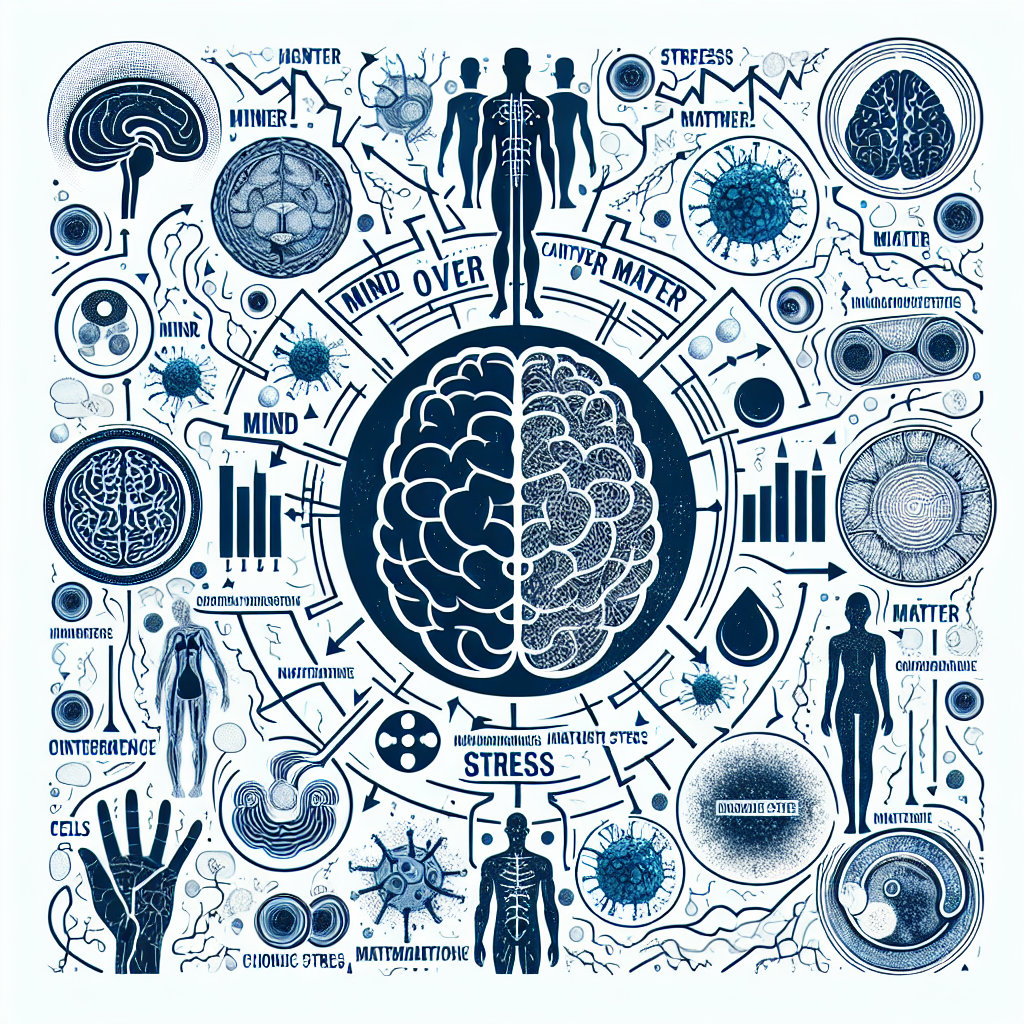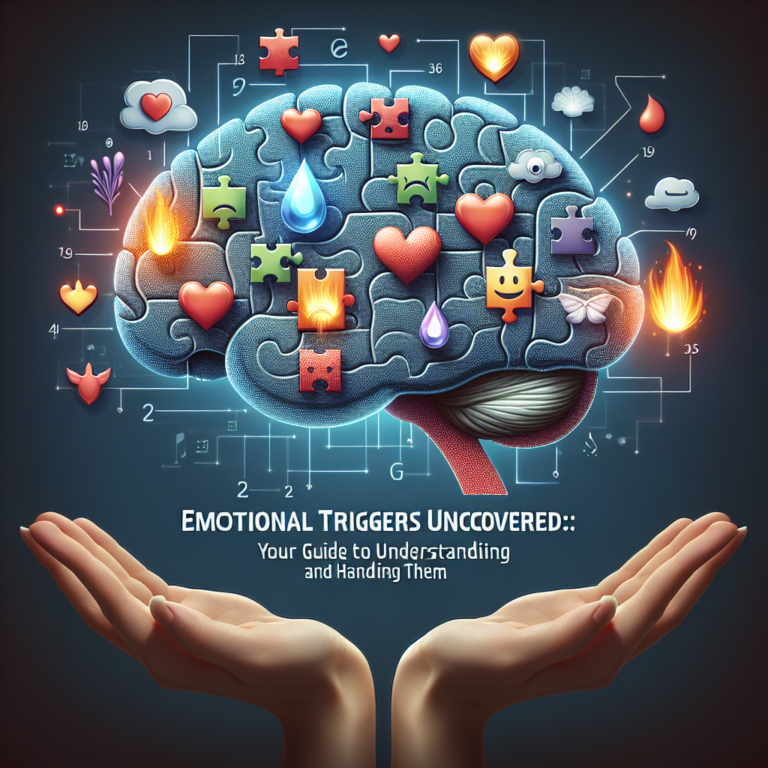
Mind Over Matter: The Biological Impacts of Chronic Stress on Health
Introduction
In our fast-paced, hyper-connected world, stress has become an unwelcome companion for many of us. From juggling multiple responsibilities at work to maintaining personal relationships, the effects of chronic stress can manifest in various ways, significantly impacting health. The phrase "mind over matter" resonates with this struggle, highlighting the crucial connection between mental states and physical health. Understanding Mind Over Matter: The Biological Impacts of Chronic Stress on Health is essential for developing effective coping strategies and enhancing well-being.
Why Focus on Chronic Stress?
Chronic stress isn’t just a buzzword; it’s a complex biological phenomenon that can lead to debilitating health issues, including anxiety, depression, and cardiovascular disease. What’s more, it has the potential to alter our biology, affecting everything from immune responses to inflammation levels. In this article, we’ll break down the intricate relationship between chronic stress and health, providing insights that can empower you to take action.
The Biology of Stress
What Happens in the Body?
Understanding the biological impacts of chronic stress begins with how the body reacts when faced with stressors. The stress response involves various systems, notably the hypothalamic-pituitary-adrenal (HPA) axis, which plays a key role in regulating hormones like cortisol—often referred to as the "stress hormone."
| Hormonal Response to Stress | Impact on Health |
|---|---|
| Increased cortisol levels | Weakened immune response |
| Elevated adrenaline | Increased heart rate |
| Altered serotonin levels | Mood disturbances |
The HPA Axis Explained
When faced with a threat, the brain signals the release of corticotropin-releasing hormone (CRH), triggering the pituitary gland to secrete adrenocorticotropic hormone (ACTH). This, in turn, stimulates the adrenal glands to produce cortisol. While cortisol is essential for short-term survival—helping with energy regulation and immune function—chronic elevation due to ongoing stress can have detrimental health effects.
Case Study: The Office Worker
One compelling case is that of an office worker named Sarah, who experienced prolonged stress due to tight deadlines and job insecurity. After several months, her cortisol levels had skyrocketed, resulting in chronic fatigue, insomnia, and weakened immunity. Understanding Mind Over Matter: The Biological Impacts of Chronic Stress on Health helped Sarah develop effective coping strategies. With techniques such as mindfulness meditation and scheduled breaks, she regained control over her health.
The Psychological Dimension
How Chronic Stress Affects Mental Health
Chronic stress is not just a physical burden; it also deeply influences our mental state. According to research, individuals under constant stress are more likely to experience depression and anxiety. The connection between stress and mental health can create a vicious cycle. Stress can lead to mental health issues, which, in turn, can exacerbate stress levels.
Neuroplasticity and Stress
Neuroplasticity refers to the brain’s ability to reorganize itself by forming new neural connections. Chronic stress can negatively influence neuroplasticity, leading to difficulties in emotional regulation and cognitive function.
| Mental Health Effects of Chronic Stress | Potential Outcomes |
|---|---|
| Anxiety | Panic attacks |
| Depression | Mood swings |
| Cognitive decline | Impaired memory |
Case Study: The College Student
Consider a college student, Tom, who faced immense academic pressure. Under chronic stress, he developed anxiety and struggled with concentration. After learning about the effects of chronic stress, Tom implemented self-care practices and sought counseling. Over time, he noticed significant improvements in his mental clarity and emotional stability.
Physical Health Consequences
Cardiovascular Health
Chronic stress is a well-known risk factor for cardiovascular diseases. Elevated cortisol levels can cause the body to store fat and lead to hypertension, increasing the risk of heart attack and stroke.
Immune System Suppression
When stress becomes chronic, it can hinder the immune system’s ability to function effectively, making the body more susceptible to infections and diseases.
| Consequences of Chronic Stress on Physical Health | Health Issues |
|---|---|
| Elevated blood pressure | Heart disease |
| Inflammatory responses | Autoimmune disorders |
| GI issues (e.g., IBS) | Digestive problems |
Case Study: The Parent
A parent named Lisa found herself constantly juggling work and family commitments, leading to chronic stress. She experienced frequent colds and digestive issues, attributed to her high stress levels. After implementing stress-management strategies like yoga and deep breathing, her immune system regained its strength, resulting in improved health overall.
Coping Strategies
Mindfulness and Meditation
Practices like mindfulness meditation can help reduce stress levels by promoting relaxation and providing mental clarity. Research indicates that regular meditation can lower cortisol levels and improve overall mental health.
Physical Activity
Exercise is a powerful antidote to stress. Engaging in regular physical activity can reduce the harmful effects of stress and improve mental well-being.
Nutrition
A balanced diet rich in antioxidants and omega-3 fatty acids can help combat the biological impacts of chronic stress. Foods such as leafy greens, nuts, and fatty fish can contribute to physical and mental health.
Conclusion
Mind Over Matter: The Biological Impacts of Chronic Stress on Health teaches us that our mental state has profound consequences on our physical health. Understanding this connection can empower individuals to take proactive steps in managing stress. Whether through mindfulness practices, regular exercise, or proper nutrition, small changes can lead to significant health improvements.
Additionally, being aware of how chronic stress impacts your body and mind is the first step toward a healthier, more balanced life. Take control of your health today, and remember that with the right tools, it is indeed possible to overcome the challenges life throws your way.
FAQs
1. What are the long-term effects of chronic stress?
Long-term effects include cardiovascular diseases, weakened immune responses, and mental health issues such as depression and anxiety.
2. Can stress management techniques reverse the effects of chronic stress?
Yes, incorporating techniques like mindfulness, exercise, and healthy eating can help mitigate the harmful effects and promote recovery.
3. How does chronic stress affect sleep?
Chronic stress can disrupt sleep patterns, leading to insomnia and other sleep disorders, which further complicate health conditions.
4. Are certain individuals more susceptible to the effects of chronic stress?
Yes, factors like genetics, lifestyle, and prior trauma can influence how an individual copes with stress.
5. Is there a difference between acute and chronic stress?
Yes, acute stress is a short-term response to an immediate threat, while chronic stress persists over time and can lead to serious health issues.
By understanding and addressing the Mind Over Matter: The Biological Impacts of Chronic Stress on Health, you can create a healthier and more fulfilling life free from the chains of chronic stress.















